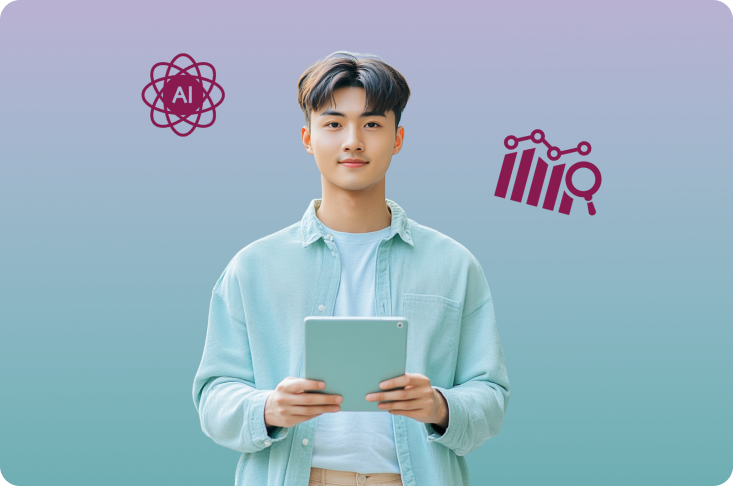🎓 Helping Your Child Choose the Right Higher Education Path: A Parent’s Guide to Future-Ready Learning

One of the most overwhelming—yet important—decisions you’ll make as a parent is guiding your child toward the right higher education path. Gone are the days when a traditional university degree was the only option or even the most effective one. In today’s global, fast-evolving job market, students have access to a wide range of educational models that go beyond the classroom. These include online universities, hybrid degrees, vocational programs, and innovative work-study programs that combine practical experience with academic learning.
So, how do you choose the right path? How do you support your child in selecting an education that not only aligns with their passions but also prepares them for a successful, adaptable career in the digital age?
In this article, we’ll help you evaluate your child’s individual needs and goals, explore the diverse educational environments available today, and introduce you to future-ready programs like eduCLaaS’ International Bachelor’s Degrees, which are redefining what meaningful higher education looks like.
🧠 Understanding Your Child’s Needs and Aspirations
Before diving into options, start by exploring your child’s interests, personality, and learning preferences. Every student is different, and a one-size-fits-all education rarely serves anyone well.
Questions to Ask:
- What subjects or activities genuinely excite them?
- Do they enjoy structured environments or self-paced exploration?
- Are they more collaborative or independent?
- Do they want to work while studying or focus solely on academics?
- Are they career-focused or still figuring out their goals?
🏫 Types of Higher Education: A Comparative Table
Here’s a high-level comparison of the most popular higher education models available today:
| Education Model | Pros | Cons | Ideal For |
|
Traditional Universities |
Recognized credentials, structured learning, vibrant campus life | High cost, outdated curricula, limited industry exposure | Students who thrive in classroom environments and value university culture |
|
Online Universities |
Flexible schedule, accessible anywhere, lower cost | Less social interaction, lower engagement, minimal practical exposure | Self-disciplined learners, working students, or those in remote areas |
|
Hybrid Learning Programs |
Mix of online flexibility and in-person mentorship, includes real projects | Requires strong time management, can vary in quality | Students who want the best of both digital and personal learning |
|
Vocational/Technical Education |
Job-ready skills, hands-on training, short duration | Narrow focus, may limit academic progression | Students interested in trades, tech, or applied sciences |
|
Work-Integrated Learning (WIL) |
Real-world experience, career development, employer connections | Requires time balancing academics and work | Career-driven students who want to graduate job-ready |
Each of these paths has strengths. The key is identifying which one aligns with your child’s learning style, career vision, and financial considerations.
💼 Why Work-Integrated Learning Is Gaining Momentum
Traditional academic programs focus heavily on theory. But in today’s economy, students also need real-world application and employability skills. That’s where Work-Integrated Learning (WIL) becomes a game-changer.
WIL blends academic coursework with practical experience, ensuring students can apply what they learn in professional settings—from internships and cooperative placements to client-based projects.
Benefits of Work-Integrated Learning:
| Benefit | Description |
| Real-world experience | Students graduate with 1–3 years of hands-on work in their chosen field |
| Stronger career clarity | Exposure to real roles helps students refine their interests |
| Higher employability | Employers value proven skills over theoretical knowledge |
| Expanded professional network | Students build relationships with mentors, managers, and peers |
| Confidence and adaptability | Working in real settings enhances soft skills and problem-solving abilities |
WIL closes the gap between what students learn and what employers need—making it one of the most valuable forms of modern education.
🌐 Why Traditional Degrees Alone Aren’t Enough in the Digital Economy
The digital economy is transforming how industries function. Automation, remote work, AI, and global collaboration are no longer emerging trends—they’re everyday realities.
Key Skills for Modern Careers:
| Skill | Why It Matters |
| Digital fluency | Employers expect graduates to use digital tools and platforms confidently |
| Problem-solving | Real work involves ambiguity and complexity—students need to think critically |
| Adaptability | The ability to learn, unlearn, and relearn is vital in fast-evolving roles |
| Communication | Remote and hybrid work makes clear communication even more essential |
| Lifelong learning mindset | Continuous upskilling is a must for career longevity |
Traditional degrees often don’t equip students with these skills. In contrast, WIL programs are designed to build them naturally, through practice and mentorship in real-world environments.
🚀 Introducing eduCLaaS: Education Reimagined for the Future of Work
At eduCLaaS, we’re transforming higher education by placing career outcomes at the heart of the learning experience. Our International Bachelor’s Programs combine online learning, real-world work placement, and expert coaching to prepare students not just for jobs—but for sustainable, future-ready careers.
What Makes eduCLaaS Stand Out?
| Feature | Description |
| Global Degree Programs | Students earn internationally recognized Bachelor’s degrees in Digital Business or Software Engineering |
| 3 Years of Work Placement | Integrated into the program, giving students tangible experience with global companies |
| Hybrid Learning Model | Combines digital flexibility with offline mentorship and teamwork |
| Industry-Backed Curriculum | Co-designed with employers to ensure relevance and job readiness |
| Career Coaching | Soft skills, personal branding, interview prep, and career planning embedded throughout |
eduCLaaS isn’t just an education provider—it’s a launchpad for young professionals who want to graduate with purpose and confidence.
👨👩👧 How Parents Can Play an Active Role
As a parent, you don’t have to choose your child’s path—but you can guide them with insight and empathy. Here’s how:
Ways to Support Your Child:
- Encourage exploration: Let your child try internships, short courses, or part-time work to discover their passions.
- Focus on outcomes: Ask about what they’ll do with their degree—not just what they’ll study.
- Prioritize real-world skills: A program that teaches soft skills and technical tools is more valuable than one that only emphasizes grades.
- Support flexibility: Understand that online or hybrid models may be more aligned with how young people learn today.
- Be open to new models: Education is evolving, and the best opportunities may not look like the ones you had.
Your role is to empower rather than prescribe. Help your child see that the right education will set the foundation for not just a job, but a fulfilling career and life.
🎁 Ready to Explore a Smarter Education Path?
If you and your child are searching for a modern, career-focused education model that delivers both knowledge and experience, eduCLaaS may be the answer.
- Learn by doing
- Build work experience before graduation
- Stand out to employers globally
- Receive mentorship throughout their journey
- Graduate with confidence, skills, and clarity
🎓Join a free information session to see how it works.
📖 You can also download our brochure here:

Bachelor’s Degree in Digital Business
Acquire expertise in e-commerce, data analytics, digital marketing, entrepreneurship, and strategic innovation

Bachelor’s Degree in Software Engineering
Gain proficiency in programming languages, algorithms, software design, teamwork, and problem-solving
🧭 Final Thought
The world is changing—and education must evolve to keep up. In a landscape where employers value skills, adaptability, and experience, the smartest decision you can make as a parent is choosing a future-ready program.
Whether it’s hybrid learning, work-study models, or global internships, the goal is the same: to prepare your child not just for a degree, but for a meaningful, resilient career.
By considering programs like those at eduCLaaS, you’re not just setting them on a path to graduation—you’re setting them on a path to success.



